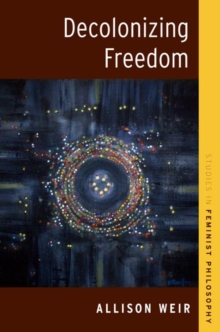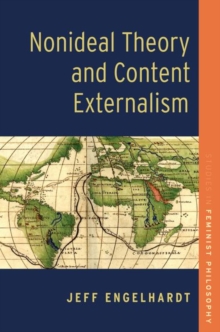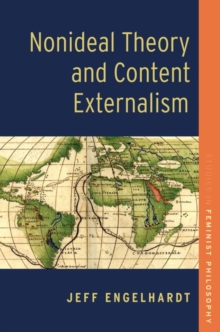
Decolonizing Freedom Hardback
by Allison (Faculty Associate, Centre for Ethics, Faculty Associate, Centre for Ethics, Universit Weir
Part of the Studies in Feminist Philosophy series
Hardback
Description
Freedom is celebrated as the definitive ideal of modern western civilization.
Yet in western thought and practice, the freedom of some has typically been defined through opposition to the unfreedom of others.
These exclusions are not secondary to a prior concept of freedom but are constitutive exclusions that have shaped the ways in which western theorists define what freedom is.
Allison Weir draws on Indigenous political philosophies and practices of decolonization grounded in conceptions of relationality and resurgence, in dialogue with western philosophies, to reconstruct a tradition of relational freedom as a distinctive political conception of freedom: a radically democratic mode of engagement and participation in social and political relations with an infinite range of strange and diverse beings perceived as free agents in interdependent relations in a shared world. Through the work of Leanne Betasamosake Simpson, John Borrows, Glen Coulthard, Audra Simpson, Rauna Kuokkanen, Joanne Barker, Jodi Byrd, James Tully, and many others, this book traces a tradition of colonial unknowing in western conceptions of freedom from Hobbes through republican and critical theories, and explores a countertradition of relations between freedom and collective love, exemplified in Leanne Betasamosake Simpson's love of land and Hannah Arendt's love of the world.
It considers Indigenous modes of world-creation as performative, affective, embodied strategies of democratic life, skilled modes of addressing diversity and conflict, fear and hostility, in practices of freedom that embrace polycentric knowledges and rooted dynamisms, in contexts of complexity and constant change.
Weir argues that Indigenous women's struggles to belong to communities and participate in governance have engendered new theories of relational rights that combine politics of rights and resurgence, and calls for a coalitional politics guided by queer and feminist Indigenous models of transformative resurgence.
Finally, Weir proposes an approach to critical theory as a practice of self-transformation through openness to the other, oriented toward relational freedom.
Information
-
Pre-Order
- Format:Hardback
- Pages:312 pages
- Publisher:Oxford University Press Inc
- Publication Date:07/05/2024
- Category:
- ISBN:9780197507940
Information
-
Pre-Order
- Format:Hardback
- Pages:312 pages
- Publisher:Oxford University Press Inc
- Publication Date:07/05/2024
- Category:
- ISBN:9780197507940










